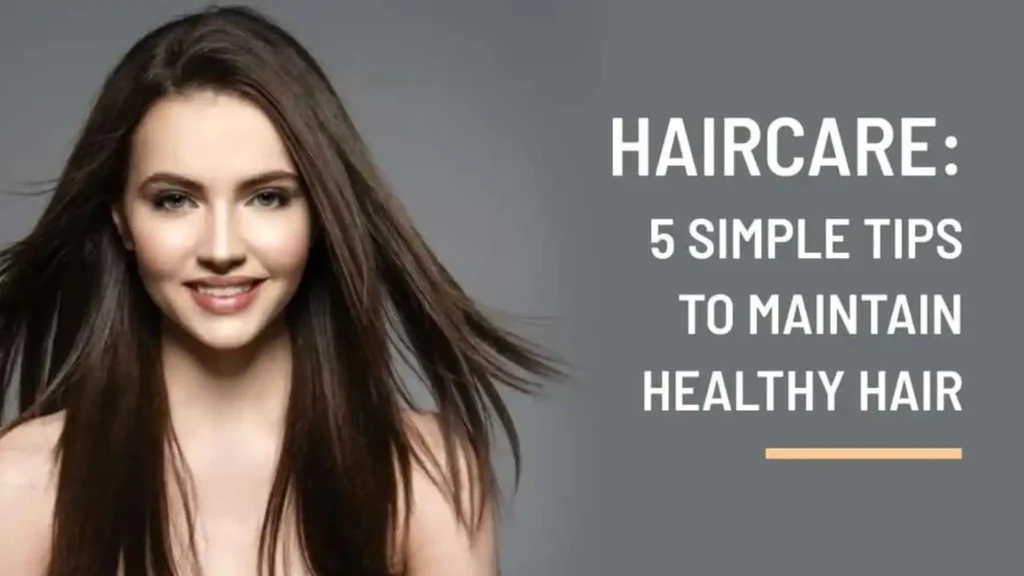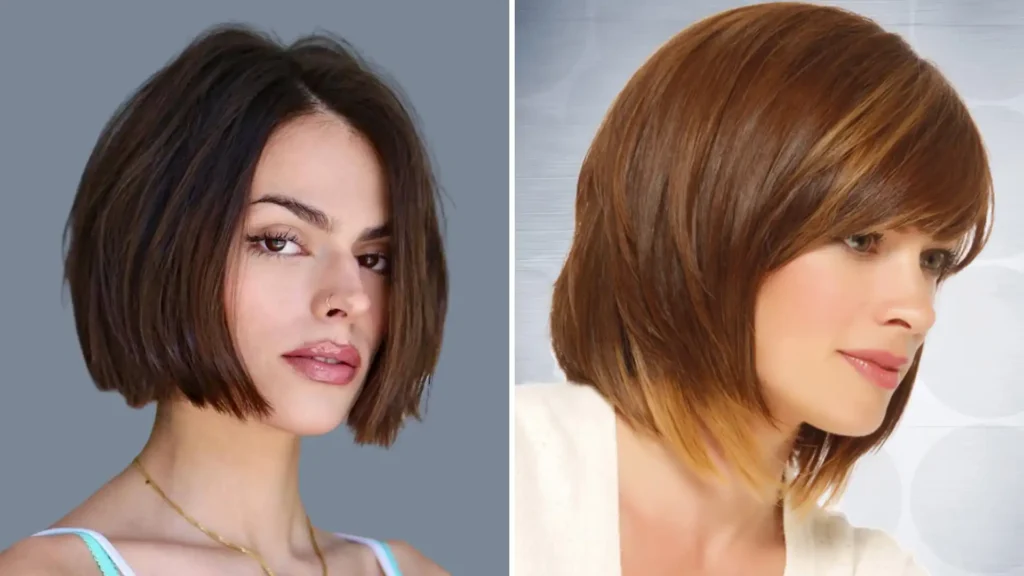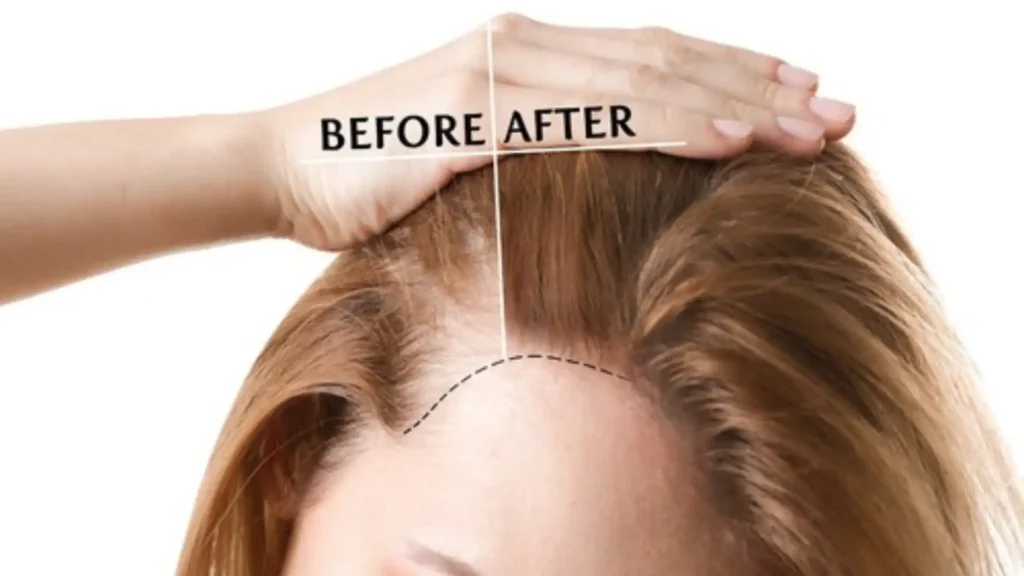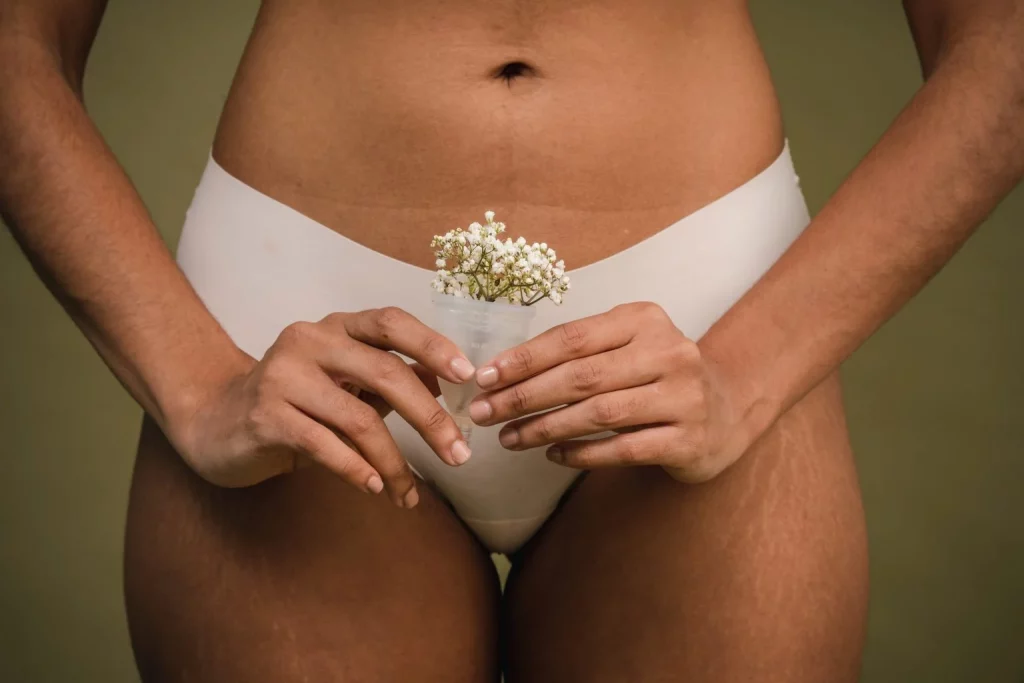Maintaining healthy hair is not just about using the right shampoo or conditioner. It involves a holistic approach that includes proper diet, hair care routines, and lifestyle habits. This article provides you with the five most effective tips to ensure your hair stays healthy, shiny, and strong.healthy hair tips.
Introduction
Healthy hair is a reflection of overall well-being. It boosts confidence and enhances your appearance. This comprehensive guide covers the essential tips to maintain healthy hair, focusing on balanced nutrition, proper washing techniques, avoiding excessive heat and chemicals, regular trimming, and using hair masks and deep conditioning treatments.
Tip 1: Maintain a Balanced Diet
A balanced diet is crucial for healthy hair. Hair is primarily made of protein, so it needs an adequate amount of nutrients to stay strong and vibrant.
Key Nutrients:
- Proteins: Essential for hair growth and repair. Include lean meats, eggs, dairy products, beans, and nuts in your diet.
- Vitamins: Vital for scalp health and hair growth. Important vitamins include:
- Vitamin A: Found in carrots, sweet potatoes, and spinach.
- Vitamin C: Found in citrus fruits, strawberries, and bell peppers.
- Vitamin D: Found in fatty fish, cheese, and egg yolks.
- Vitamin E: Found in almonds, sunflower seeds, and avocados.
- Biotin: Found in eggs, nuts, and whole grains.
- Minerals: Crucial for maintaining hair structure. Important minerals include:
- Zinc: Found in meat, shellfish, and legumes.
- Iron: Found in red meat, spinach, and lentils.
- Omega-3 Fatty Acids: Found in fish, flaxseeds, and walnuts.
Example Meal Plans:
- Breakfast: Greek yogurt with berries and nuts.
- Lunch: Grilled chicken salad with mixed greens, avocado, and a side of quinoa.
- Dinner: Baked salmon with a side of steamed broccoli and sweet potato.
Tip 2: Proper Hair Washing Techniques
Washing your hair correctly is fundamental to maintaining its health. Over-washing or using the wrong products can damage your hair.
Frequency of Washing: healthy hair tips
- Oily Hair: Wash every 1-2 days.
- Normal Hair: Wash every 2-3 days.
- Dry Hair: Wash every 3-4 days.
Choosing the Right Shampoo and Conditioner:
- For oily hair, use a clarifying shampoo.
- For dry hair, use a moisturizing shampoo and conditioner.
- For colored hair, use a color-protecting shampoo and conditioner.
Application Techniques:
- Apply shampoo to the scalp and roots. Massage gently with fingertips to cleanse.
- Apply conditioner primarily to the ends of the hair. Leave it for a few minutes before rinsing.
- Rinse thoroughly to avoid product buildup.
Tip 3: Avoid Excessive Heat and Chemical Treatments
Excessive heat and chemical treatments can cause severe damage to your hair, making it brittle and prone to breakage.
Impact of Heat:
- Heat styling tools can strip hair of its natural moisture, leading to dryness and split ends.
Safe Heat Styling Practices: healthy hair tips
- Use heat protectant sprays before styling.
- Keep the temperature below 350°F (175°C) for fine hair and below 400°F (200°C) for thick hair.
- Limit the use of heat styling tools to 2-3 times a week.
Alternatives to Heat Styling:
- Air drying: Let your hair dry naturally whenever possible.
- Natural hair styling methods: Use braids, twists, or rollers to style your hair without heat.
Chemical Treatments to Avoid:
- Frequent use of hair dyes, relaxers, and perms can weaken hair. Opt for less harsh treatments or natural alternatives.
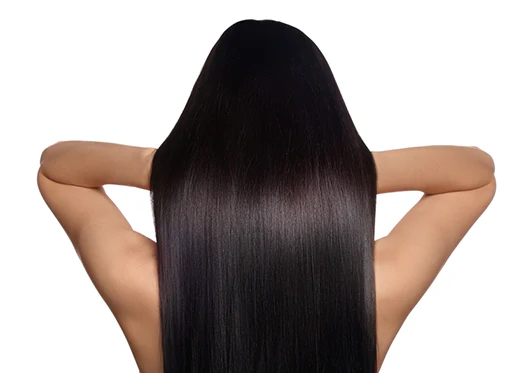
Tip 4: Regular Trimming and Scalp Care
Regular trimming and proper scalp care are essential for maintaining healthy hair and promoting growth.
Benefits of Regular Trimming: healthy hair tips
- Prevents split ends and breakage.
- Keeps hair looking neat and healthy.
- Recommended every 6-8 weeks.
Scalp Care Routines:
- Importance of Scalp Health: A healthy scalp is the foundation for healthy hair.
- Scalp Massage Techniques: Massaging your scalp improves blood circulation, promoting hair growth. Use your fingertips to massage your scalp for 5-10 minutes daily.
- Scalp Treatments and Oils: Use treatments and oils like tea tree oil, coconut oil, or specialized scalp serums to maintain scalp health.
Tip 5: Use of Hair Masks and Deep Conditioning Treatments
Hair masks and deep conditioning treatments provide intensive moisture and repair to your hair.
Benefits of Hair Masks and Deep Conditioning:
- Hydrate and nourish dry, damaged hair.
- Improve hair texture and manageability.
- Strengthen hair strands and prevent breakage.
Frequency of Use:
- For dry and damaged hair: Use a hair mask once a week.
- For normal hair: Use a hair mask every 2-3 weeks.
Recommended Products: healthy hair tips
- Choose products that contain natural ingredients like honey, aloe vera, and coconut oil.
DIY Hair Mask Recipes:
- Avocado and Honey Mask: Mix one ripe avocado with two tablespoons of honey. Apply to hair and leave for 20 minutes before rinsing.
- Banana and Olive Oil Mask: Blend one banana with one tablespoon of olive oil. Apply to hair and leave for 15 minutes before rinsing.
Lifestyle Factors Affecting Hair Health
Your lifestyle choices significantly impact your hair’s health. Addressing stress, ensuring adequate sleep, and staying hydrated are key factors.
Stress and Its Impact on Hair:
- Stress can lead to hair loss and thinning.
- Manage stress through activities like yoga, meditation, and regular exercise.
Sleep and Hair Health:
- Quality sleep is essential for overall health, including hair growth.
- Aim for 7-9 hours of sleep per night.
- Maintain good sleep hygiene by establishing a regular sleep schedule and creating a restful environment.
Hydration:
- Staying hydrated keeps your hair moisturized and healthy.
- Aim to drink at least 8 glasses of water a day.
FAQs
How often should I wash my hair?
- The frequency of washing depends on your hair type. Oily hair needs more frequent washing, while dry hair requires less frequent washing.
What is the best way to prevent split ends?
- Regular trims, avoiding excessive heat, and using deep conditioning treatments help prevent split ends.
Can diet really affect my hair?
- Yes, a balanced diet rich in proteins, vitamins, and minerals is essential for healthy hair. healthy hair tips
How do I choose the right shampoo?
- Choose a shampoo based on your hair type and specific needs (e.g., moisturizing, clarifying, color-protecting). healthy hair tips
Are natural hair care products better?
- Natural hair care products often contain fewer harsh chemicals and can be gentler on your hair.
Conclusion
Maintaining healthy hair requires a combination of good nutrition, proper hair care routines, and healthy lifestyle choices. By following these five tips, you can ensure your hair remains strong, shiny, and vibrant. Remember to be consistent with your hair care routine and make adjustments based on your hair’s specific needs.
Useful articles :
- African braiding styles
- Protective hairstyles
- Hair braiding techniques
- Traditional African hairstyles
- Hair maintenance tips
- Beaded braids
- Fulani hairstyle
- Ghana weaving
- Knotless braids
- Cultural hairstyles
Relevant External Links
- Natural Hair Care Guide: natural hair care tips
- History of Braiding: history of hair braiding
- Hair Products for Braids: best products for braids
- Choose your favorite shampoo suitable for your hair type : healthy hair tips
- Girls with curly hair should follow this hair care routine, each and every braid will look shining: healthy hair tips
- Dermatologist-Endorsed Hair Care Tips for Immediate Use: healthy hair tips
- Say Goodbye to Dandruff: Permanent Solutions and Remedies : healthy hair tips
- Unveiling the Secrets to Radiant Hair: A Guide to Gentle Hair Care Practices and Protective Hairstyles :healthy hair tips
- Follow us on Facebook : healthy hair tips
- Follow us on Pinterest: healthy hair tips
By following this guide, you can achieve a stylish and balanced look with the right bangs for your small forehead. Embrace the change and enjoy the confidence boost that comes with a fresh, flattering hairstyle.healthy hair tips.

